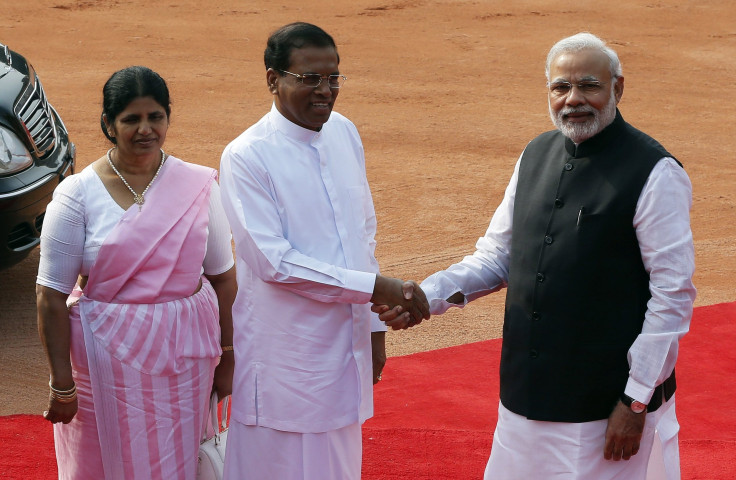Is India-Sri Lanka Nuclear Deal Aimed At Countering China?

NEW DELHI -- Weeks after breaking the deadlock on its civil nuclear agreement with the U.S., India on Monday signed a civil nuclear agreement with its southern neighbor Sri Lanka.
“The bilateral agreement on civil nuclear cooperation is yet another demonstration of our mutual trust. This is the first such agreement Sri Lanka has signed. It opens new avenues for cooperation, including in areas like agriculture and healthcare,” Indian Prime Minister Narendra Modi said, while addressing a joint press conference in New Delhi with the newly elected Sri Lankan President Maithripala Sirisena, who is on his first foreign visit since taking office in January.
The civil nuclear deal between the two neighbors is being seen as an attempt by India to ward off the growing Chinese influence in the region.
Ever since he became the prime minister in May last year, Modi has been aggressively courting members of the South Asian Association for Regional Cooperation (SAARC), which, besides India and Sri Lanka, include Pakistan, Nepal, Afghanistan, Bhutan, Bangladesh and Maldives. In fact, he began the charm offensive by inviting the heads of all SAARC countries to his swearing-in ceremony on May 26 last year. Last week, Modi had called up leaders of SAARC countries participating in the ongoing cricket World Cup to wish their teams luck and had said that India’s foreign secretary would visit all the SAARC capitals.
Modi’s overtures to these countries are being seen by many analysts as India’s attempt to alter its regional power equation with China, to counter the latter’s so-called ‘string of pearls’ strategy in the Indian Ocean region. “Attention to India’s neighborhood, including long-forgotten places such as Bhutan and Nepal, has improved India’s frayed regional standing,” The Financial Times wrote.
Sirisena has promised to rebalance Sri Lanka’s foreign relations away from China, Bloomberg said in a report. Officials under his predecessor, Mahinda Rajapaksa, had reportedly rankled India by suggesting that Pakistan -- whose reactors have mostly been built by Chinese companies -- may help it build nuclear power plants. The Sri Lankan president could soon visit China, media reports said.
“President Sirisena and I also agreed to expand our defence and security cooperation. We welcomed the progress in our maritime security cooperation, including in the trilateral format with Maldives,” Modi said on Monday.
Central to the China-Sri Lanka equation is a Chinese funded port city. Although the new government was widely expected to review the $1.5 billion Chinese investment, earlier this month, it gave the project a go-ahead. Chinese investments in several other ports have also been proposed.
Interestingly, the Chinese state media had reacted sharply to U.S. President Barack Obama’s January visit to the Indian capital New Delhi, terming India’s relations with the U.S. as “superficial,” saying that Obama’s three-day trip was “more symbolic rather than pragmatic.”
On Feb. 8, India had released some details of the agreement reached with the U.S. on the nuclear deal.
© Copyright IBTimes 2024. All rights reserved.





















